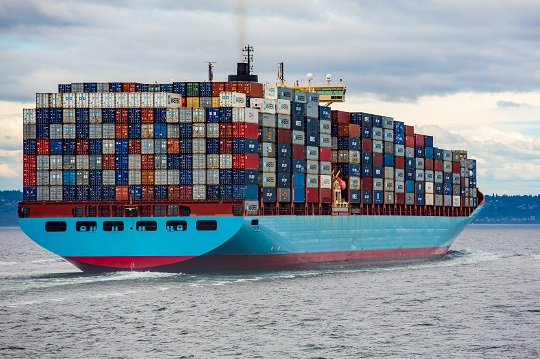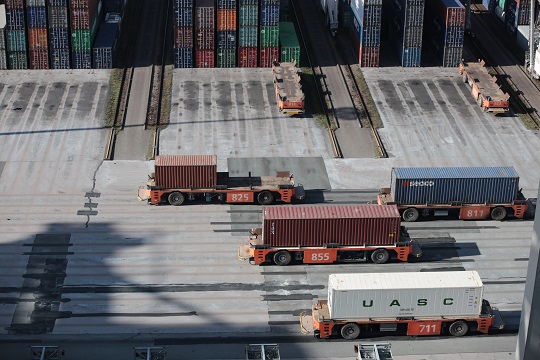In the complex world of global business, the supply chain team plays a vital role in making sure products and services move smoothly from making them to customers using them. But if this team isn’t strong, it causes problems that affect every part of a business.
In this blog post, we’ll look at 10 big problems that come up when a supply chain team isn’t strong, affecting how well a business runs, how happy customers are, and how much money is made.
Before we go further into this topic, don’t forget to follow my LinkedIn account. You’ll get more helpful insights on supply chain management there.
Table of Contents
Increased Costs and Inefficiencies
A good supply chain team is crucial for making a business run smoothly and efficiently. They handle everything from getting raw materials to delivering finished products, making sure everything happens seamlessly. This not only helps the company meet customer demands on time but also saves money, making the business more profitable.
A strong supply chain team is like the key player that keeps operations streamlined, helping the company stay competitive and responsive to market changes.
But, when the supply chain team isn’t strong, things go haywire. Poor management and lack of coordination lead to inefficiencies, causing operational costs to skyrocket. From getting materials to transportation and storage, a weak team results in unnecessary delays and wastages.
These inefficiencies create financial problems, straining the company’s resources and reducing overall profitability. Essentially, a reliable supply chain team is vital for a company to tackle logistical challenges and stay ahead in the market.
Supply Chain Disruptions
A fragile supply chain team is easily affected by disruptions like natural disasters, geopolitical events, or unexpected market changes.
Unlike a strong team that can quickly adapt to challenges, a fragile team is more likely to struggle with the domino effect of disruptions, making problems spread throughout the supply chain.

Without solid risk management and contingency plans, businesses are left vulnerable to the unpredictability of these events, leading to cascading consequences that impact the entire supply chain process.
In these situations, the consequences go beyond just operational issues. Delays in production, shipping, and delivery become unavoidable, directly affecting customer satisfaction.
Customers, used to timely and reliable services, might feel frustrated and dissatisfied, potentially losing trust in the brand.
Additionally, the ripple effect of disrupted supply chains can lead to financial losses, as missed deadlines and product unavailability hinder the company’s ability to take advantage of market opportunities.
The overall impact of supply chain disruptions goes beyond immediate financial setbacks, affecting the brand’s reputation and possibly compromising its position in the market.
Poor Inventory Management
A key factor in a business’s success is effectively managing inventory – finding the right balance between meeting customer demand and avoiding unnecessary costs.
A skilled supply chain team is crucial for achieving this balance, making sure products are available when needed without causing extra expenses.
However, with a weak supply chain team, accurately predicting customer demand becomes difficult. Mistakes in forecasting can lead to either having too much inventory (overstock) or not enough (stockouts).
The consequences of these inventory mistakes are significant. Too much inventory ties up a lot of money, limiting the company’s flexibility and cash flow. On the other hand, not having enough inventory means missed sales opportunities and unhappy customers, which can harm a business’s reputation.
Striking the right balance between supply and demand is a tricky task that requires a well-coordinated team capable of adapting to market changes.
Without a strong supply chain team, businesses struggle to effectively manage their inventory to meet customer expectations while safeguarding financial resources.
Supplier Relationship Strain
The foundation of successful supply chain management relies on building strong relationships with suppliers. A good supply chain team understands that these partnerships are mutually beneficial, emphasizing the importance of effective communication and collaboration.
However, with a weak supply chain team, communication problems and delays in sharing information become common.

The lack of coordination strains relationships with suppliers, hindering the timely exchange of important information and causing a breakdown in trust.
The consequences of strained relationships with suppliers go beyond communication challenges. Delays in sharing information can lead to late deliveries, affecting the entire supply chain schedule.
Quality issues may also arise due to misunderstandings or a lack of coordination between the supply chain team and suppliers.
In the worst-case scenario, the breakdown of trust and failure to meet agreed-upon standards can result in losing key suppliers.
These disruptions can have a cascading effect, jeopardizing the reliability and stability of the entire supply chain and potentially harming the company’s reputation in the market.
You might also like:
- 10 Factors That Can Make ERP System Implementation Fail
- 10 Essential Considerations Before Building a New Production Facility
Customer Dissatisfaction and Erosion of Loyalty
Customer satisfaction depends on a dependable and efficient supply chain.
Nowadays, customers expect smooth experiences with products readily available and delivered on time.
However, when the supply chain team falters, these expectations turn into letdowns.
Late deliveries, caused by mismanagement or issues in the supply chain, become a major frustration for customers eagerly waiting for their orders.
Additionally, receiving damaged goods or inconsistent product availability adds more dissatisfaction, undermining the trust and loyalty customers have in the brand.
The consequences of such customer dissatisfaction are significant and go beyond immediate concerns.
A bad customer experience can harm the company’s reputation, potentially leading to long-term problems.
In the age of social media and online reviews, unhappy customers quickly share their complaints, making the negative impact on the company’s image even greater.
The importance of a reliable supply chain team becomes clear in its ability to maintain customer satisfaction, protecting the brand’s reputation and building lasting loyalty among consumers.
Compliance and Regulatory Risks
In the complex world of global trade, a strong supply chain team acts as the company’s protector, well-informed about international trade rules and compliance standards.
Navigating through changing laws, tariffs, and industry norms requires a deep understanding of the legal details governing cross-border transactions.

A capable supply chain team not only keeps up with these rules but also proactively includes compliance measures in daily operations, ensuring a smooth and legal movement of goods.
This expertise not only reduces legal risks but also makes the company appear reliable and responsible in the global market.
On the flip side, a weak supply chain team is more prone to mistakes and misunderstandings of these important rules.
Such errors can lead to legal troubles and potential fines, putting the company’s finances and reputation at risk.
The significance of following rules cannot be emphasized enough, as sticking to international trade laws not only protects against legal problems but also plays a key role in maintaining a positive company image.
A company seen as ethical and legally responsible is better able to earn trust from stakeholders and build long-term relationships in the global business community.
Lack of Innovation and Adaptability
In the fast-changing world of modern business, being adaptable and innovative is key for long-term success. A strong supply chain team is like a driving force for change, quickly embracing new technologies and methods to navigate the challenges of the market.
This adaptability helps the team respond fast to new trends and positions the company to benefit from innovative solutions that make things more efficient and cost-effective.
The collaboration between a forward-thinking supply chain team and cutting-edge technologies is crucial for keeping the company ahead of the competition.
On the flip side, a weak supply chain team often resists change, making it hard to adopt new technologies or methods. This unwillingness to innovate puts the company’s competitiveness at risk.
In a time when market dynamics change really fast, not adapting hampers the company’s ability to save costs, respond to what customers want, and ultimately stay ahead of industry competitors.
The lack of innovation within the supply chain not only slows down operational progress but also limits the company’s ability to thrive in a highly competitive business environment.
Ineffective Communication and Collaboration
Good communication and teamwork are like the lifeblood of a smoothly running supply chain, enabling smooth interactions among different people both inside and outside the organization.
A strong supply chain team knows how vital it is to keep communication clear, making sure important information flows well between departments, suppliers, and partners.

On the other hand, when a supply chain team is weak, communication problems become common, causing misunderstandings, delays, and a lack of coordination among different parts of the supply chain.
This breakdown goes beyond just operational problems and seriously threatens the overall efficiency and unity of the supply chain.
The negative effects of communication problems in a weak supply chain team are many.
Misunderstandings between departments can lead to mistakes in decision-making, causing delays in getting materials, making products, and delivering them.
The lack of coordination creates blockages that affect the entire supply chain, messing up schedules and overall productivity.
This makes it harder to respond quickly to what the market needs, take advantage of opportunities, and meet customer expectations.
So, promoting a culture of clear communication and teamwork within the supply chain team isn’t just something nice to have; it’s a must for ensuring the ongoing success and strength of the entire supply chain.
You might also like:
- Mastering Inventory Audits: A Comprehensive 10-Step Guide for Success
- Top 10 Key Considerations in Choosing Self-Managing Logistics or Using 3PL Services
Increased Lead Times
In ensuring customer satisfaction, delivering products on time is crucial for how people see a company’s reliability and service quality.
A strong supply chain team, knowledgeable about managing lead times, makes sure that products get to their destination when they’re supposed to.
On the other hand, a less reliable supply chain team may struggle with handling lead times well, facing difficulties in getting materials, making products, and transporting them on time.
These delays, whether from mismanagement or inefficiencies, create a domino effect, upsetting customers who expect quick deliveries and risking important relationships with partners and retailers.
The consequences of prolonged lead times affect the entire supply chain network. Disappointed customers might look for other options, hurting brand loyalty and trust.

For partners and retailers relying on timely deliveries, delays can mess up their own operations and make it hard for them to meet customer demands.
As a result, a weakened supply chain not only hurts customer satisfaction but also puts key partnerships at risk.
This emphasizes the crucial role of a strong supply chain team in maintaining trust among all stakeholders and protecting the company’s position in the market.
Strategic Alignment Missteps
A strong and united supply chain team plays a crucial role in an organization, connecting its day-to-day plans seamlessly with the bigger business goals.
This connection is essential for reaching the best efficiency and being responsive to market changes.
When the supply chain team is solid, it’s a key part of the company’s big-picture planning, making sure every step in the supply chain supports the overall business objectives.
This teamwork not only helps the company react well to market trends but also lets it take advantage of new opportunities, ultimately leading to ongoing growth and competitiveness.
On the flip side, a weak supply chain team is prone to misalignments that can cause serious problems.
When supply chain planning doesn’t match up with the wider goals of the company, it leads to inefficiencies, missed chances, and a struggle to adapt quickly to market trends.
In these situations, the supply chain becomes more of a problem than a help in achieving strategic goals.
This misalignment not only stops the organization from grabbing business opportunities but also brings in operational problems that can slow down the overall growth and competitiveness of the company in the long run.
That’s why having a strong supply chain team is crucial to make sure every operational decision lines up with the organization’s big-picture vision.
Conclusion
In the global business scene, a weak supply chain team can lead to serious problems with wide-ranging effects.
It can bring financial troubles, harm relationships, and weaken customer trust, making it tough to recover.
Understanding the value of a strong supply chain team is the initial move to strengthen this vital part of business.
By putting resources into skilled people, modern technology, and smart planning, companies can handle the challenges of the modern supply chain world.
This investment sets the stage for a strong and enduring foundation, paving the way for long-term success.
I hope you find it helpful!
Please share this article with your colleagues so they can also benefit. For more insights on supply chain management, follow my LinkedIn account. You’re free to use all articles on this blog for any purpose, even for commercial use, without needing to give credit.

 by
by 
